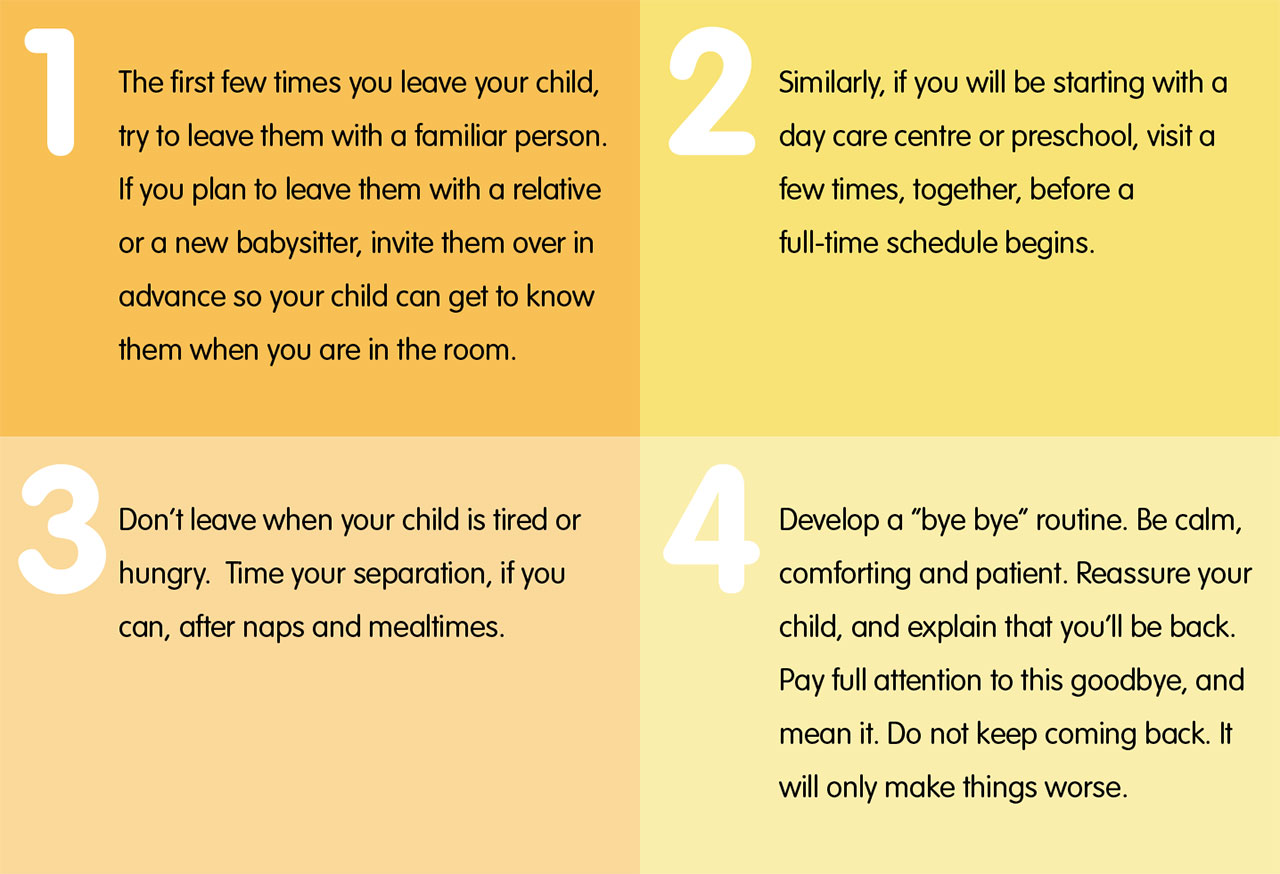How to Say Goodbye to Those Fearsome Tears

There will probably come a time in your child’s development when separation from you is the cause of great stress and anxiety. There will be tears and tantrums, but despite all the fuss, it’s all quite normal.
Normal, but unsettling none-the-less. This “separation anxiety” usually isn’t much of a problem at your child’s early weeks and months. At a younger age, your child adapts much more readily to being left with someone besides a parent. But around the first birthday, many kids start to feel much less comfortable with the notion of separation.
Why does this happen? From around 8 months to 1 year old, the child is developing into a more independent toddler. And yet they are also becoming even more uncertain about being separated from a parent. They sense insecurity and doubt about a mom’s absence, whether you just go to the next room or drop off your child for day care.

How long this “separation anxiety” phase lasts varies. Some children never experience it. Others might go through it later, even up to a few years of age. Again, this is normal and will eventually abate as your child realises that when you leave, you always come back! This is when the child begins to develop coping skills and a little independence.
But if the anxious reactions last into pre-school or even primary school, there may be other causes beyond just being a phase. Like bullying or a deeper anxiety disorder. If you have any doubts, talk to a medical professional.
Meantime, here are a few tips that can help you and your child through the difficult, temporary period of separation anxiety.


This might all seem easier said than done. It’s painful seeing a child who is screaming and crying for you. But unless you plan on never being apart from your child, you must have confidence that your caregiver can handle the situation. He or she should be prepared to distract the child with an activity or a toy, songs and games, anything that the child enjoys during play time.
Remember, this too will pass. One day you’ll suddenly find that something connected and after all that trying, your child gets it. The fearsome tears are gone!







